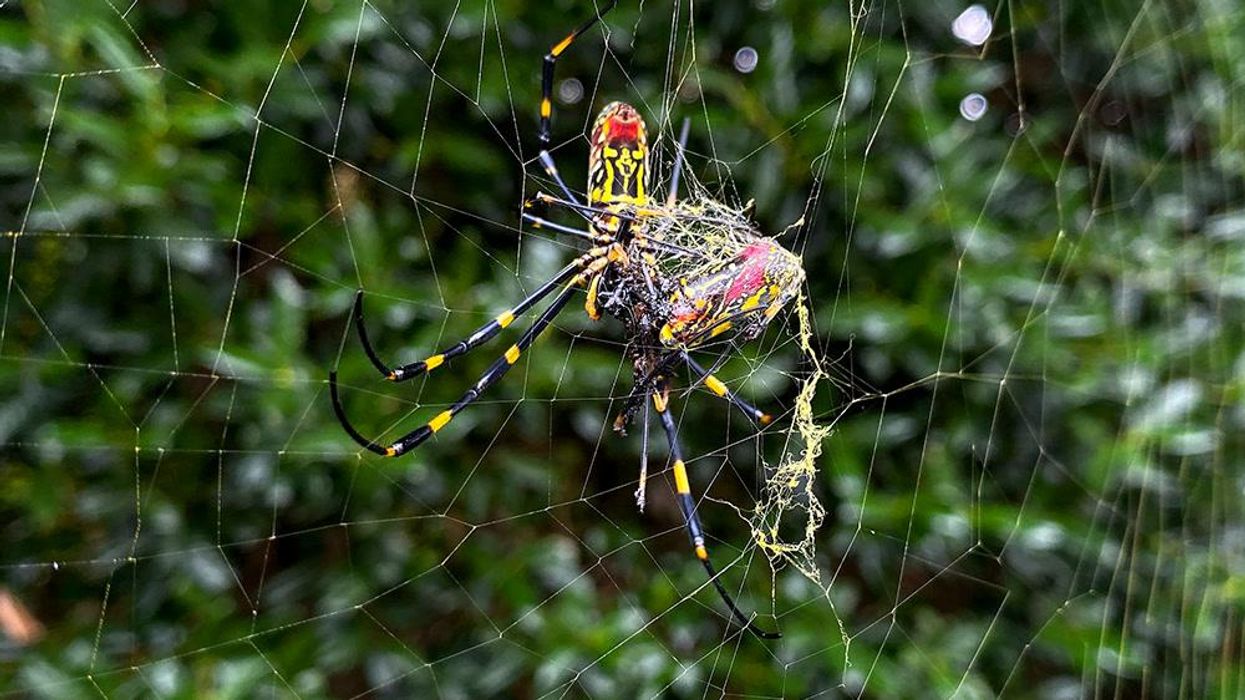Science & Tech
Ariana Baio
Mar 09, 2022
Huge invasive spiders expected to spread along US east coast after arriving ...
Video
Bad news for east coasters with arachnophobia: a massive spider species that got a foothold in Georgia and North Carolina could soon colonize much of the east coast.
The Joro spider is distinctive due to its colorful pattern, large size, and extensive webs.
The spider's webs are known for their organized, yet elaborate, shape that give off a golden hue. The Joro spider's webs are extremely strong and can stretch up to 10 feet.
Because of this, the spiders can 'balloon' or move through the air by releasing threads of their silk. Thus the spiders can appear as if they are falling from the sky.
Despite their scary appearance, the spiders are not venomous, although they do bite if they feel threatened. But that doesn't mean people want to see giant colorful spiders falling from the sky.
adding "child hand sky spiders" to list of fears to consider at 2 in the morninghttps://twitter.com/axios/status/1501562236690644992\u00a0\u2026— scaachi (@scaachi) 1646841248
pic.twitter.com/LpaGYq5fCX— Tony (@Tony) 1646707925
But before you pack up to move to Kansas or 'kill it with fire', know that these spiders are not harmful to our ecosystem and assist in killing mosquitos and invasive stinkbugs.
“There’s really no reason to go around actively squishing them,” Benjamin Frick an undergraduate researcher at the University of Georgia said to UGA Today. “Humans are at the root of their invasion. Don’t blame the Joro spider.”
Unlike the invasive lanternfly, Joro spiders seem to pose no threat.
The species is native to Japan, Korea, Taiwan, and China but was first discovered in the US in 2013 in Georgia and western North Carolina.
Sign up for our new free Indy100 weekly newsletter
In a study published by the University of Georgia, researchers found that the spider will likely become native to the east and southern parts of the United States in the future due to its adaptability to cooler climates.
"Just by looking at that, it looks like the Joros could probably survive throughout most of the Eastern seaboard here, which is pretty sobering," study co-author Andy Davis said in a statement.
Have your say in our news democracy. Click the upvote icon at the top of the page to help raise this article through the indy100 rankings.
Top 100
The Conversation (0)














